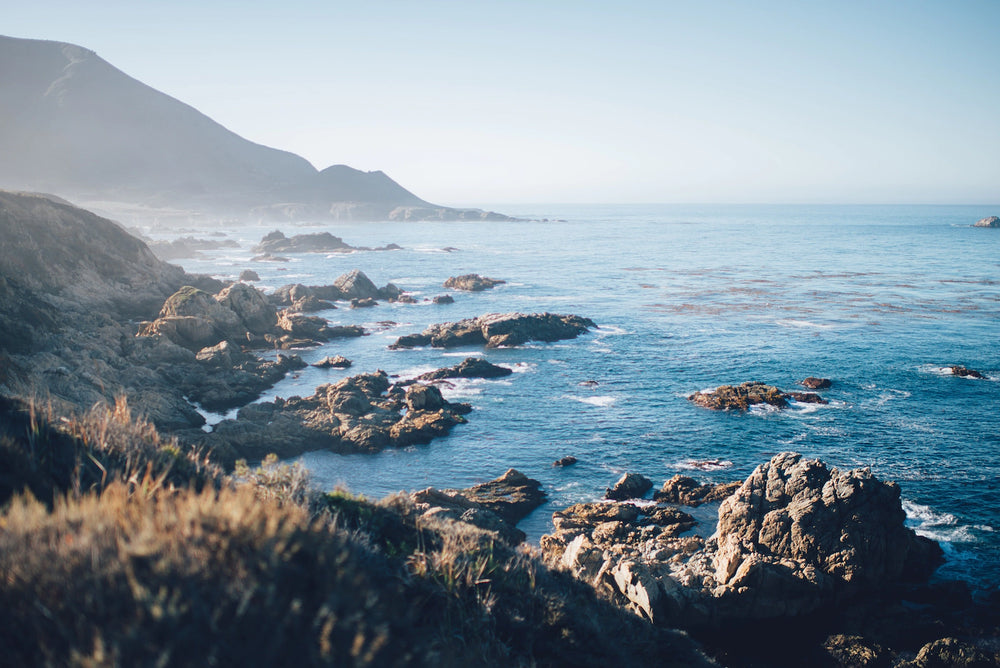
Restoring Portugal’s Forgotten Forests
Kelp forests used to be abundant along the coastline of Cascais but have largely disappeared in the last thirty to forty years. SeaTrees has made an early stage investment in the development of the green gravel technique for doing kelp forest restoration off the shallow coast of Cascais, Portugal. We will be working with SeaForester to implement this kelp forest restoration project with the deployment of 25,000 stones over 27,000 sq-ft of kelp forest.
Today, pollution levels and water quality have improved due to better wastewater treatment and limitations on fishing equipment, yet seaweed has failed to recolonize much of the available habitat, and specific restoration actions to re-seed reefs are urgently needed. Now that conditions are stable for kelp regrowth, we will be implementing innovative sea forestation techniques with project partners SeaForester.
Project Overview:
This project aims to lay the foundation for scaled-up seaforestation activities at selected sites in Portugal to restore native kelp populations. SeaForester is currently establishing its new upscaled infrastructure (nursery container) for the production of restoration materials (e.g. seeded stones).
Learn More About Green Gravel
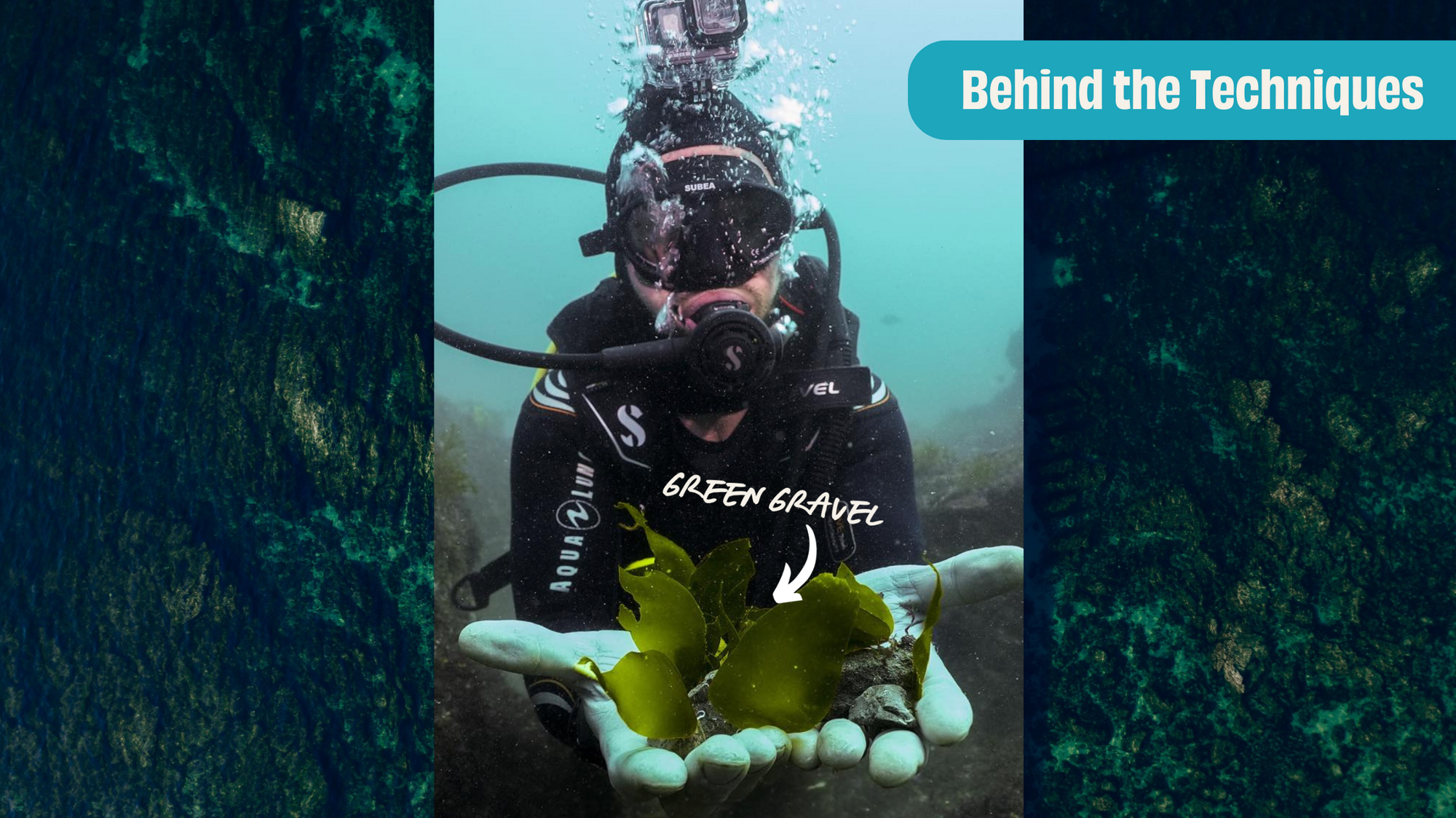
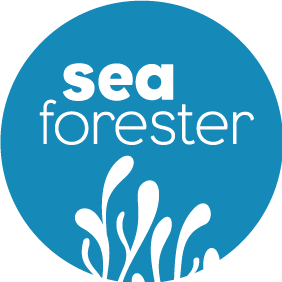
SeaForester
SeaForester is an environmental impact company dedicated to restoring the forgotten forests in our ocean. They have been at the forefront of testing effective restoration techniques to replant kelp ecosystems through research projects in Portugal and abroad and is now implementing its solution at scale through the development of a novel seaweed nursery container.
A little further reading...

A Fragile Ecosystem
Kelp forests historically occurred across all Portuguese rocky shores, but have experienced a dramatic decline due to poor water quality, negative fishing impacts, pollution and coastal runoff.
Kelp decline in Portugal has led to a decrease in biodiversity, fewer fish, less carbon sequestration and poorer water quality. Local communities that rely on these habitats for subsistence and various economic activities are the ones most affected by their decline.
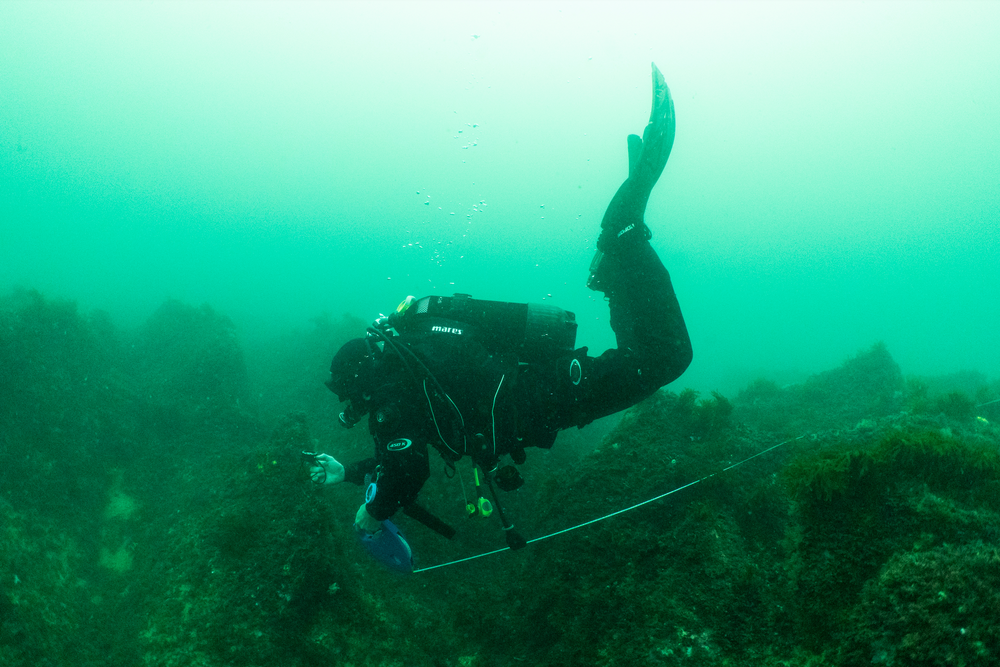
Scaling up kelp forest restoration
The seaforestation technique used in this project involves the seeding of small stones with seaweed spores, growing them on land in specialized nurseries and deploying them in the sea. The seeded stones can be scattered from a boat without the need for divers or technical equipment, providing a low-cost and scalable seaforestation solution. We have been testing and promoting the technique through research projects in Portugal and overseas.
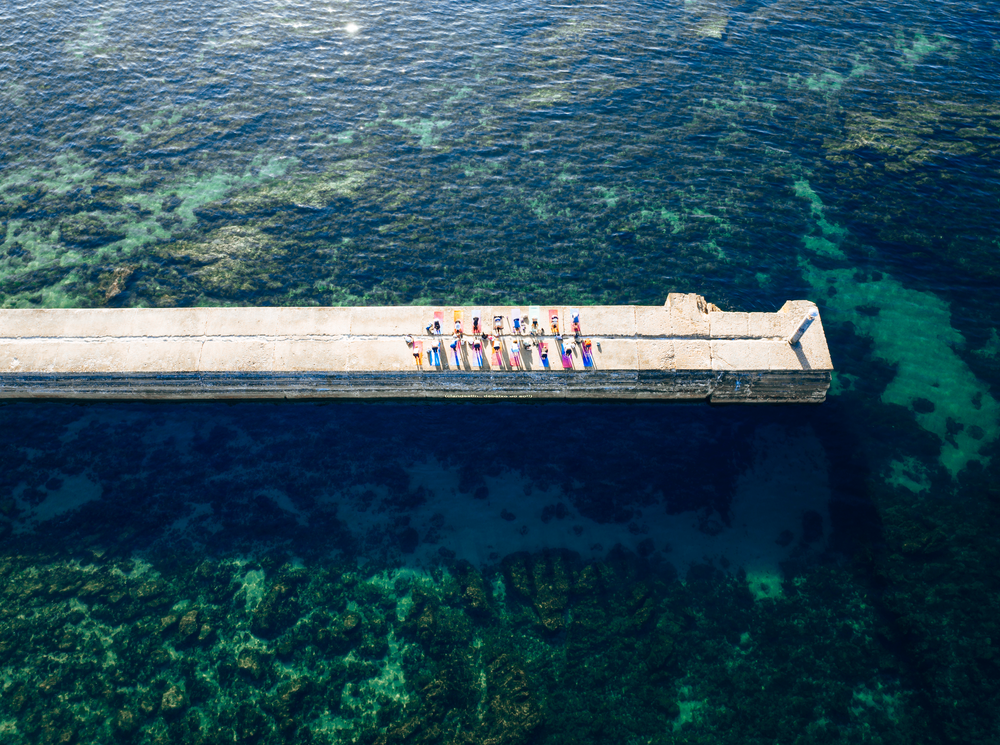
Sustainable Development
This project provides long-term employment for the local community. This in turn drives other Sustainable Development benefits.

